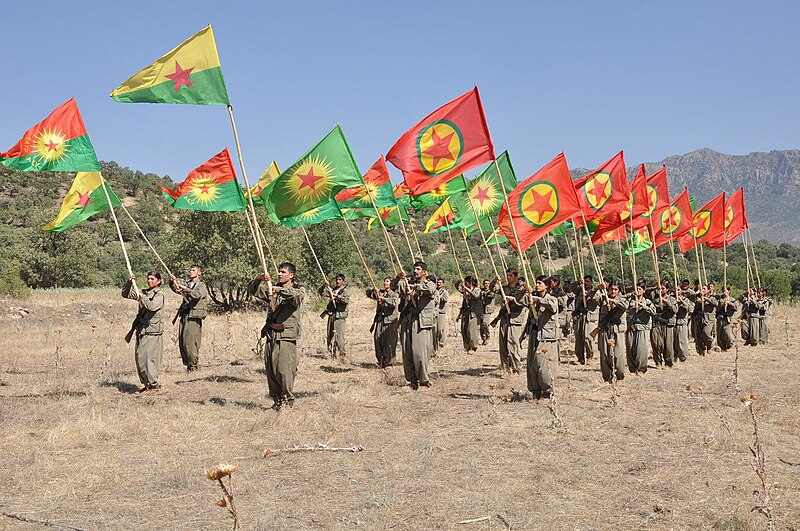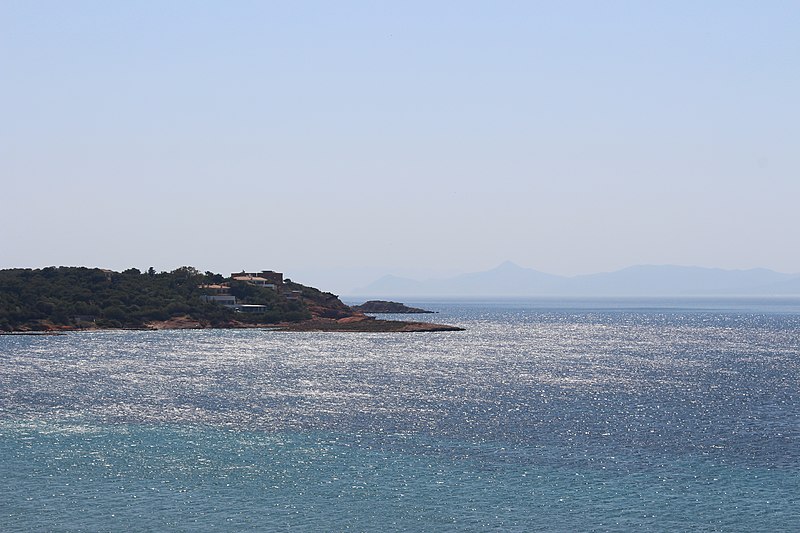Erdogan: Turkey’s New Era of Imperialism

Gazing out across the Istanbul landscape is the Çamlıca Mosque. With its classical Ottoman arches, six minarets, and seventy domes, it is a monument to the legacy of the long-gone empire, and is the largest mosque in all of Turkey. But it was not built centuries ago, like the other mosques in Istanbul; it was finished early last year, as part of Turkey’s ruling Justice and Development Party’s “mega project” scheme. It is a symptom of a shift from a once proudly secular state to one run by (and pandering to) its Islamic citizens, where, despite railing against Western imperialism, they seek to expand their influence across Arabia once again.
One only has to hear one of Erdogan’s speeches to appreciate his hatred towards the colonising tendencies of the West. “The era of those who for centuries have left no region unexploited from Africa to South America, no community un-massacred and no human being un-oppressed, is coming to an end”.
Just from this excerpt, it is clear how much Erdogan and his Ottoman heroes hate the genocide and oppression of minorities. His actions, however, don’t echo this anti-imperialist rhetoric.
The withdrawal of US troops in Syria under Trump allowed Erdogan’ s invasion. He considered the Kurdish YPG a branch of a the PKK insurgent organisation in Turkey, and has shown no regard for civilians lives.
Turkey’s invasion 30 kilometres into Syria, to establish a “safe-zone”, in a largely Kurdish area, for resettling fleeing civilians has been widely criticised by the West. One should note that this move was enabled by Trump’s withdrawal of troops from the US-backed Syrian Democratic Forces’ territory, led by the Kurdish YPG.
According to the human rights charity Amnesty International, the Turkish and their rebel allies “have displayed a callous disregard for civilian lives, launching unlawful deadly attacks in residential areas that have killed and injured civilians”.
Under the pretence of resettling civilians, this was clearly a move to bring the Kurds firmly under Erdogan’s jackboot. He considers the YPG an arm of the PKK (an insurgent organisation in Turkey) and therefore terrorists.
PKK Guerillas
Not only are there Turkish forces fighting in Syria, but they have deployed forces in Libya since last year, backing the UN-mandated Government of National Accord (the GNA). This has led to disputes with France over its past affiliation with the Libyan National Army, whom the GNA is fighting against. The relationship between the Libyan GNA and Turkey has also led to the signing of a deal between the two, demarcating a maritime Exclusive Economic Zone. This agreement ignores the existing maritime zones of the Greek islands, and has exacerbated tensions in the Mediterranean, between Greece and Egypt with Turkey.
Vessels in the Aegean Sea have only recently sparked tensions once more
Erdogan has also caught international attention by transforming the iconic Hagia Sophia from museum to mosque. This is a building with a divisive past, having been built as a cathedral by the Eastern Orthodox Byzantines in the 6th Century, and standing as the largest of its kind for nearly a millennium. It was then converted by the Ottomans into a mosque, when they took what is now Istanbul in the 15th Century. As such, its conversion was a sign of goodwill between the Turks and the Greeks. But, after centuries at the heart of the Muslim Ottoman empire, the Turkish Republic turned it into a museum in 1934, in an effort to make the country secular.
The Hagia Sophia has taken on huge symbolic importance through the centuries
Its conversion back into a mosque again last year, opened with a sermon given by a mufti wielding an Ottoman sword, was extremely provocative, given the heightened tensions between Greece and Turkey. Turkey has been trying to claim fossil fuel reserves and energy resources which, under international law, are under Greek waters. This is not only bad for peace in the Balkans, but threatens Turkey’s international position as a member of NATO- if not the integrity of the organisation itself, given Greece’s membership and the European and American backing for Greece’s claim.
This is all on top of a drift away from NATO military co-operation, as exemplified through the purchase of Russian S-400 anti-air missiles. The US had to warn Turkey against its Russian deal, which it believes is a threat to its new F-35 fighter jets, even asking it to choose between the two missile systems.
Alignment with Russia may not be in Turkey’s best interest, however, as the historical rivalry between the two countries reared its head this year in Nagorno-Karabakh, with Russia backing the Armenians and Turkey backing the Azeri.
Given all this, it is clear to see that Erdogan styles himself as the new sultan, despite his empty anti-imperialist rhetoric. His aggressive expansionism threatens the stability of not only the Middle East, but the entire post-Cold War world order.
Hagia Sophia image © Anne Dirkse via Wikimedia Commons
Cover image of Erdogan © Kremlin.ru via Wikimedia Commons
America and Turkey in Syria image © ahvalnews via Wikimedia Commons
PKK Guerillas © Kurdishstruggle via Wikimedia Commons
Aegean Sea © Emőke Dénes via Wikimedia Commons



